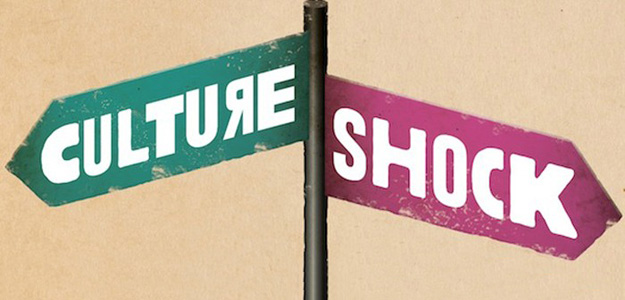I’m not talking about being shocked by local customs or the price of a beer, but rather the emotional journey you are on when you are moving to a foreign land.
Culture shock can be described as the feelings you experience after leaving your familiar home culture to live in another cultural or social environment. Many people associate culture shock only with extreme changes of moving from one country to another, but it could also be a move within your own country. Even the most open-minded and culturally sensitive among us are not immune to culture shock.
There has been a lot of research and training completed on this subject and I find it a very fascinating topic, which I’ll try to summarise here for you. Firstly, you are not alone, most expats are riding or have ridden this rollercoaster.
Although everyone has their experience of going through the changes, there is a general pattern that can be observed.
1) The happy stage, sometimes called the Honeymoon stage
Everything is fascinating and extremely exciting. The new culture is just unbelievable. You are watching, touching, tasting and smelling. Your Facebook friends probably can’t stand your constant postings: “Oh life in Australia is so amazing”.
2) The cultural shock
You start being more realistic, start seeing the negative aspects of the culture. You actually start comparing both cultures and miss your familiar old environment. You might be frustrated and confused. You might experience a language problem, but that’s nothing in comparison to the broader communication differences. You ask yourself: what’s wrong with these people?
3) The adjustment stage
That’s when the sun is rising after a dark night 🙂
You start accepting the differences and start understanding the other culture. You are becoming more open minded, start understanding your heritage and are more open to the new environment. You start making routines for yourself. Try to practice your favourite sport or take a new one. Build your life here and stop relying on Facebook and Whataspp for your friendships.
4) The mastery stage
Here’s the final stage of your journey: the culture mastery. You don’t wipe out your own culture, but instead you learn about integration and how to be bicultural. You are at peace with the negative aspects; they don’t bother you anymore. You have adopted some of the local culture as your own. You are making real friends.
And what if you decide to go back home?
Because you have readjusted and you are bicultural you may never look at you home country the same again. You might experience what is known as a reverse culture shock. Returning to your home culture after growing accustomed to a new one can produce the same effects as described above. This results from the consequences of the readjustment process to the primary culture. You may find it more surprising and difficult to deal with than the original culture shock of moving in the first place.
Top Tips with Dealing with Culture Shock
- Learn as much as you can about the new location before you go.
- Stereotypes may be helpful, but they may go against you. Not everyone will fit to what you expected and you may find it challenging to learn about the new country and its people if you stick to them.
- Be open-minded and willing to learn.
- The move will be a challenge, so give yourself plenty of time
- Don’t give up! Continue to experience the new culture. Travel within the country, visit cultural events and locations, learn the history.
- Build new friendships: speak to other expats and locals.
- Stay active, do what you love doing.
- Bring a few touches of home with you: music, books, film etc.
- Keep in touch with people at home. This can give you some comfort while away, and it will help you to minimise reverse culture shock IF you ever decide to get back home.





No comments yet.